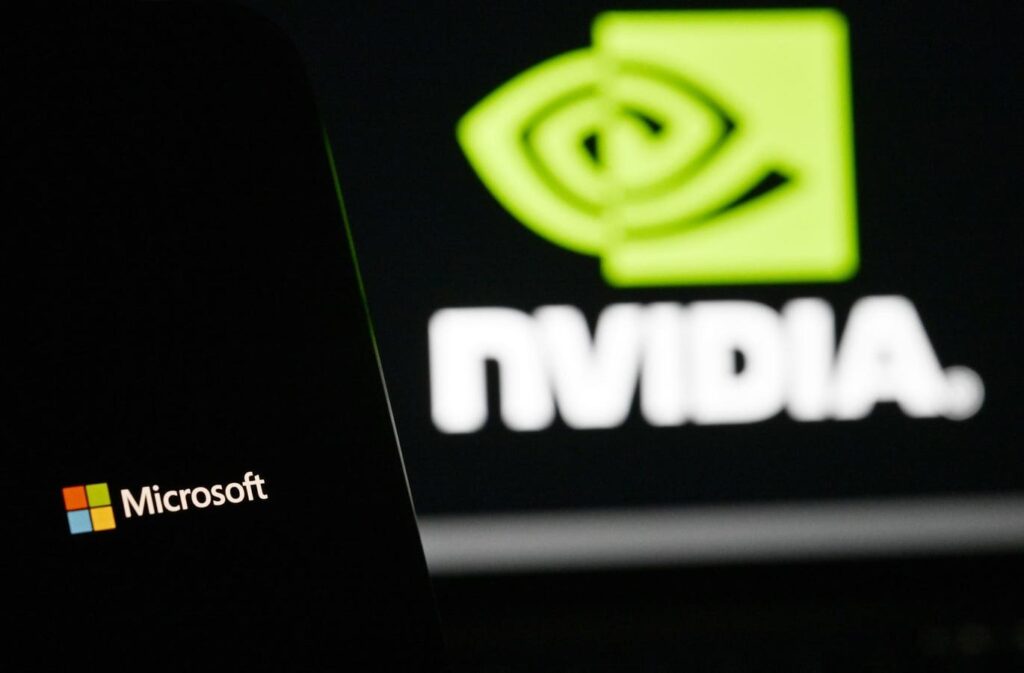Nvidia and Microsoft are navigating the evolving landscape of Bitcoin and cryptocurrency, showcasing contrasting approaches within Big Tech. Nvidia has emerged as a significant player in the crypto sector, driven by the demand for its graphics processing units (GPUs) used predominantly in Bitcoin mining. This pivotal role has contributed to Nvidia’s remarkable revenue growth, despite a lawsuit from shareholders alleging misrepresentation of its cryptocurrency revenue. In this environment where Bitcoin’s legitimacy is increasingly acknowledged, Microsoft is tentatively exploring the idea of adding Bitcoin to its balance sheet, a significant shift for a company traditionally rooted in centralization. The potential for Microsoft’s investment is noteworthy, reflecting a growing recognition within conservative corporations of the value and viability of cryptocurrency.
The historical skepticism surrounding Bitcoin, particularly from major financial and corporate entities, has gradually dissipated as organizations like MicroStrategy have successfully capitalized on early investments in the cryptocurrency. Michael Saylor’s MicroStrategy reported a staggering profit of $11 billion on its Bitcoin investments, highlighting a lucrative opening in the market that more cautious firms, such as Microsoft, cannot ignore any longer. Microsoft’s deliberation on Bitcoin and its risks indicates an adaptation to shifting geopolitical, macroeconomic, and technological landscapes; these transformations are facilitated by advocacy from forward-thinking companies and a growing acceptance from institutional investors. Consequently, while seen as a latecomer, Microsoft’s contemplations might signal a pivotal moment for broader corporate adoption of cryptocurrency.
Regulatory clarity is another critical factor influencing Microsoft’s interest in Bitcoin. Governments worldwide are actively working on legislation to integrate cryptocurrencies into traditional financial frameworks. Notable regulations such as the U.S.’s FIT 21 and the European Union’s Markets in Crypto Assets (MiCA) are emblematic of a broader acceptance of cryptocurrencies, underscoring their significance in the financial ecosystem. As politicians and regulators acknowledge Bitcoin and blockchain technology’s permanence, the evolving legal landscape provides a foundation for traditional corporations to engage with cryptocurrency confidently. This newfound regulatory environment signifies that companies like Microsoft view Bitcoin not only as a speculative asset but as a serious consideration for long-term strategy and investment.
The decision by conservative companies to invest in Bitcoin can greatly enhance the cryptocurrency’s reputation and stability. Microsoft, with its substantial market presence and valuation, exemplifies the ripple effect one significant company can have on the broader cryptocurrency ecosystem. Should Microsoft decide to invest heavily in Bitcoin, it would not only legitimize the cryptocurrency but also inspire other corporations to follow suit, potentially reducing the volatility traditionally associated with Bitcoin. The convergence of large corporations into the crypto space could lead to price stabilization, attributable to a shift in the composition of Bitcoin investors towards corporate treasuries rather than retail speculation.
In the wider context of technological innovation, the emergence of Layer 2 solutions and the continued integration of crypto within established systems demonstrates an increasing convergence between the fiat and cryptocurrency environments. Nvidia’s utilization of blockchain technology and crypto-related advancements further cements the intricate relationship between the tech sector and digital assets. These developments may encourage more conservative corporations to explore Bitcoin as part of their business strategies, demonstrating that cryptocurrency is no longer solely the domain of risk-takers and early adopters but is becoming an essential component of modern corporate finance.
Ultimately, the ongoing deliberations within Microsoft illustrate the larger trend of legacy companies grappling with innovation while remaining cautious about radical changes. As tech giants navigate their roles in a rapidly changing landscape, the decisions made by influential companies will significantly impact the trajectory of Bitcoin and the broader cryptocurrency market. Whether or not Microsoft ultimately decides to embrace Bitcoin, the mere discussion of it sends powerful signals about the future of finance, highlighting the tension between established norms and the disruptive potential of decentralized technologies.

